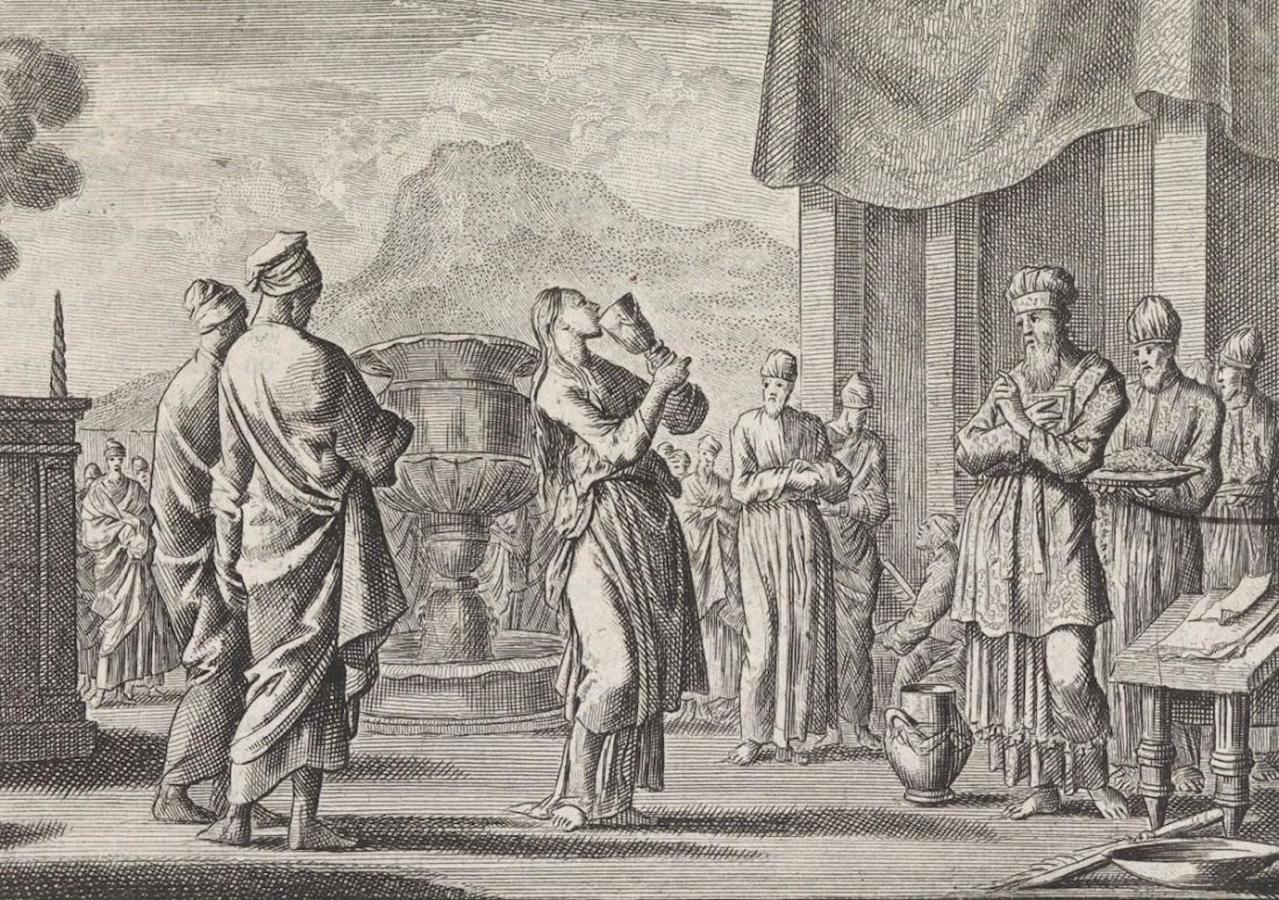Commentary on Parashat Nasso, Numbers 4:21-7:89
Each year, the Shabbat after Shavuot leaves some Jews who follow the day’s Torah reading puzzled, upset or embarrassed. A major element of the Torah portion Naso concerns the sotah, or “unfaithful wife,” and it entails something strange, and indeed unparalleled anywhere else in the Torah: an apparent trial by ordeal.
Many ancient cultures — and even less ancient ones, like the 17th-century Puritans who conducted the Salem witch trials — used ostensibly supernatural means to determine the guilt or innocence of someone accused of a crime. The accused was subjected to an unpleasant, or downright torturous, experience. Establishing innocence often meant just surviving the ordeal, but sometimes it meant not surviving it, in which case the verdict brought solace only to the accused’s survivors.
According to the Torah, the sotah law kicks in when a man suspects his wife of being unfaithful and warns her to not seclude herself with a particular other man. If it is established that she ignored the warning, she becomes subject to a ritual that involves her drinking a concoction of water, a bit of dirt from under the Temple’s marble floor, a bitter herb and the rubbed-off dried ink of the text of the Torah’s description of the sotah ritual, including God’s name.
If the woman is guilty, she and the man with whom she sinned will suffer a terrible death. The Talmud says that if the woman has great merit in fostering Torah study, she may not die immediately but only show symptoms at the time of a malady that will eventually take her life. But if she is innocent, she will not only suffer no ill effects, but will be blessed with children if she was childless and with healthy ones if previous ones were sickly.
With your help, My Jewish Learning can provide endless opportunities for learning, connection and discovery.
The sotah drink ingredients are, if unpleasant, entirely innocuous. And so it would take a divine intervention to bring about the described punishment. Pondering those facts well is the beginning of understanding why the ritual exists and why, unlike every other law in the Torah, the sotah faces not a trial but an ordeal.
When a punishable Torah law was intentionally committed in ancient times, if witnesses attested to the violation, a court was empowered to mete out the prescribed punishment. If there were no qualified witnesses, then the crime was ignored by the court. In the Talmud’s words, “God has many messengers.” So if God chose to punish the violator, God could find a way to do so. So why is the sotah subjected to this ritual?
Well, actually, she isn’t subjected. If she chooses to simply dissolve her marriage and forfeit the financial support promised her, the husband is compelled to grant her a divorce and she suffers no other penalty. And therein lies the second key to understanding the strange law of sotah. The ritual is not intended to punish the woman if she is guilty. It is to absolve her if she is innocent, and preserve love and trust in her marriage.
The entire point of the sotah ritual, in other words, is to convince a husband who has every reason to be suspicious of his wife’s fidelity, since she secluded herself with another man. God is involved only to convince the husband that his wife is not adulterous. The husband’s jealousy will thus dissolve and allow him and his wife to resume their marriage in trust and love. The wife may have still done something wrong, but the husband’s worst suspicions have been divinely exploded.
One can imagine the reconciliation that would certainly follow. That is why the talmudic maxim most associated with the sotah law is, “So great is peace between a man and his wife that the Torah commands that the name of the Holy One, Blessed be He, written in sanctity, should be erased onto the [sotah] water.”



